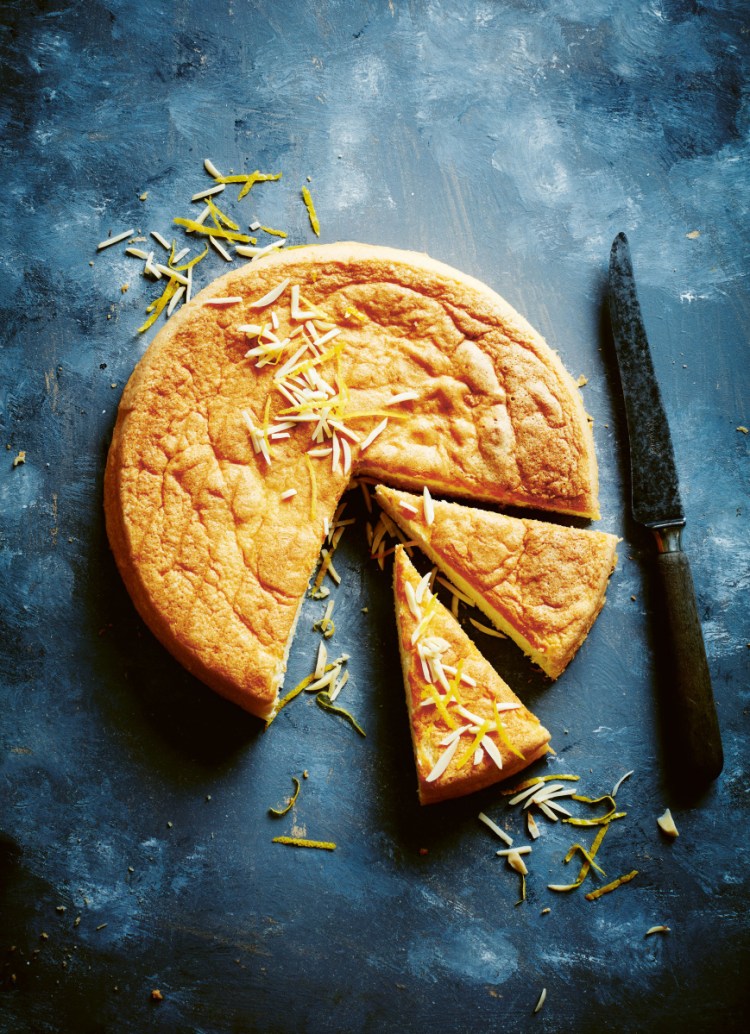‘Hazana: Jewish Vegetarian Cooking.’ By Paola Gavin. Quadrille. $35.
Paola Gavin is a vegetarian cookbook impresario. Her previous books covered France, Italy and the Mediterranean. “Hazana,” Hebrew for “nourishment,” is a book of Jewish vegetarian dishes, which expands her area of expertise to North Africa, tracing 2,000 years of how Jews have influenced and been influenced by the cooking of their friends and neighbors, and perhaps also persecutors.

“Hazana” begins with 25 pages of history and cultural lessons, starting with the vegetarian Essenes, the second-century BCE Jewish ascetics who wrote the Dead Sea Scrolls, and dedicating a page each to the Jewish history of every country included in the book. She also runs down the major Jewish holidays and personally, as a Jew, I have opinions about which has the best food.
Passover observations are completely built around food: two nights of feasts, four glasses of wine at each meal, what’s not to like? At a modern vegetarian seder, you will see a blood-red beet instead of a shank bone on the seder plate. Tu BiShvat, aka Jewish Arbor Day, involves snacking on dried fruits and nuts and also four glasses of wine during dinner.
As a non-vegetarian, my favorite chapter in “Hazana” is Eggs, which has so many ideas for an adventurous amateur. Ejjeh kusa, mini zucchini and scallion omelets favored during Shabbat in Syria, are spiced with mint and cinnamon. And Gavin’s recipe for harissa can be used to make Tunisian ojja, eggs scrambled with spicy tomato sauce.
But a warning if you’ve got an indulgent palate: Some of the recipes are very healthy. Prunes, artichokes and cabbage abound. Gavin recommends frying pampushki in olive oil because, “I believe cooking with vegetable oils can be bad for your health.” But pampushki are cheese-stuffed mashed potato dumplings, so if you ask me, maybe go with the higher-temperature frying oil and do it right.
On Monday night, I’ll make something to bring to Rosh Hashana dinner (the Jewish New Year) with my family. Regardless of what we’re eating, the High Holy Days are the most important time in Judaism. We open with a New Year’s feast and close with fasting on the Day of Atonement, Yom Kippur, 10 days later.
Rosh Hashana dinner does not mandate wine beyond a Kiddush cup, but the meal should be woven with sweetness. My healthy, Jewish, vegetarian mom usually has the lentil/leek/eggplant/mushroom/fennel corner covered, so I’m going to bring dessert.
Gavin writes that boka di dama, an almond sponge cake, was brought to Tunisia from Livorno, Italy, which was settled by Jews expelled during the Spanish Inquisition. The baseline cost of the specialty ingredients the recipe requires was a little extra – almond flour, orange blossom water – but it’s OK because I’m definitely making this cake a few more times this year. I don’t bake often and separating eggs, then folding egg whites seemed intimidating, but as with all good recipes, if you pay attention and take your time, the risk pays off. The cake was delicious, unique and honestly, it felt great when tasters complimented me on my newfound skill.
In her introduction, Gavin concludes that “one thing we all have in common is the love of food and cooking.” This is true, but here in America, where everyone eats bagels, the FBI reported that 54 percent of anti-religious hate crimes in 2016 were committed against Jewish people and Jewish institutions. If you want to keep score, 25 percent were anti-Muslim, 4 percent were anti-Catholic, and 4 percent were anti-Protestant and Christian.
The comfortable will be shocked by those statistics, the afflicted will shrug. Maybe this is the first cookbook review ever to include hate crime statistics, but some people imagine the solution to racism and bigotry is to get to know each other.
It feels good to think peace is just a good meal and conversation away. But this scenario works only if powerful, fearful people are willing to go to strange tables and the hosts are confident enough to let them in. Over thousands of years, the extent of human kindness ebbs and flows. As the 21st century has begun, it’s hard to tell whether the tide is in or out.
L’shanah tova. May this year bring you wisdom, humility and as much food as you want.
Molly Adams can be contacted at:
madams@mainetoday.com
Twitter: mollyelena
ALMOND SPONGE CAKE (BOKA DI DAMA)
Recipe from “Hazana: Jewish Vegetarian Cooking.”
Serves 8
6 eggs, separated
150g (3/4 cup) caster or (superfine) sugar
200g (2 cups) ground almonds
2 tablespoons plain (all-purpose) flour
1 teaspoon baking powder
Finely grated rind of 1 orange
1-2 tablespoons orange flower water
Butter a 23cm (9-in) springform cake tin and dust with flour.
Beat the egg yolks and sugar together until light and creamy. Add the ground almonds, flour, baking powder, orange rind and orange flower water and mix well. In another bowl, whisk the egg whites to stiff peaks, then gently fold into the egg yolk mixture.
Pour the batter into the prepared tin and bake in a preheated 180°C/350°F/gas 4 oven for 45-55 minutes or until a knife inserted into the centre of the cake comes out clean. Remove from the oven, unclip the tin and allow to cool for 5 minutes. Turn out onto a wire rack and set aside to cool completely.
Send questions/comments to the editors.



Comments are no longer available on this story